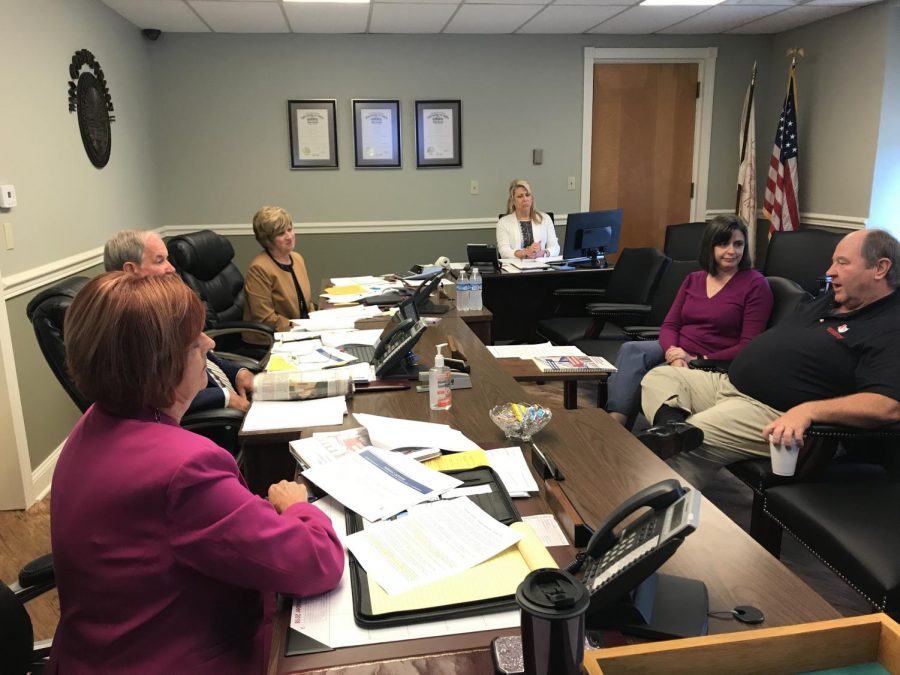Counties seek to rectify relations with state
Representatives from the County Commissioners Association of Ohio meet with the Muskingum County Commissioners Thursday, Oct. 12.
October 12, 2018
Counties across the State of Ohio are not pleased with the state and are looking for monetary compensation to amend that friendship.
“We feel that, over the recent years the state-county partnership has been severely eroded by some of the things that have occurred at the legislative level, primarily funding sources,” John Leutz, Legislative Council for the County Commissioners Association of Ohio, said. “We figure that, over the last decade, County Government has lost about $351 million a year in revenue sources.”
Representatives from the County Commissioners Association of Ohio met with the Muskingum County Commissioners Thursday to discuss anticipated actions to amend that state-county partnership.
The counties have lost $351.4 million in revenue sources due to loss of tangible personal property taxes ($40.4 million loss), a to the state’s local government fund ($145.3 million loss) and the lost sale tax revenue from the Medicaid MCO Sales Tax ($165.7 million loss), according to the County Commissioners Association of Ohio.
“We can no longer perform the functions adequately that the state expects us to perform with the revenues that we are receiving,” Leutz said. “We need help from the General Assembly and we need our partnership strengthened and restored between the legislature and its county governments.”
Although a lot of revenue has been lost, the state has provided some Transitional Aid to help counties adjust to the losses and to sort of “wean” the counties off of those revenue streams, Leutz said.
The association argues that it’s at the heart of implementing state policy and, with the major cuts to funding, there are not enough resources being allocated to the counties to function as well as counties have in the past.

“We are the local boots on the ground folks that make sure state policy is put in place at the local level the most effective way it can in that area,” Leutz said. “And we really need the partnership (and) support from the General Assembly because we’re basically trying to accomplish the goals they’ve established for the state from the standpoint of public policy.”
In an attempt to amend the partnership with the state, counties, through the association, are asking for certain things from the General Assembly and the new administration to help county government operate more effectively and efficiently.
The list of four main requests includes:
- Restoring of the lost revenue Medicaid Mange Sales Tax revenue.
- Restoring local government funds to the 2008 level, when the Great Recession began.
- Asking for support with the opioid addiction crisis with a line item to provide additional funding for children services due to the addition of more children into the childcare system, administration of justice due to larger case loads, coroner expenses and housing more inmates in jails.
- The state taking back the full financial responsibility for Indigent Defense Representation in the state.
The funding for Indigent Defense Representation – it’s a Constitutional Right for anyone who cannot afford an attorney to be appointed one to represent them in court – used to be a state responsibility and has since been delegated to county government. Leutz said the expense would be an additional cost of about $80 to $90 million per year to the state.
In order to accomplish those tasks, the association is hoping to work with the new Governor of Ohio to get those request in the initial introduction of the governor’s budget.
After the Midterm Election on Nov. 6, the newly elected governor has until March to present a balanced budget for the state.











